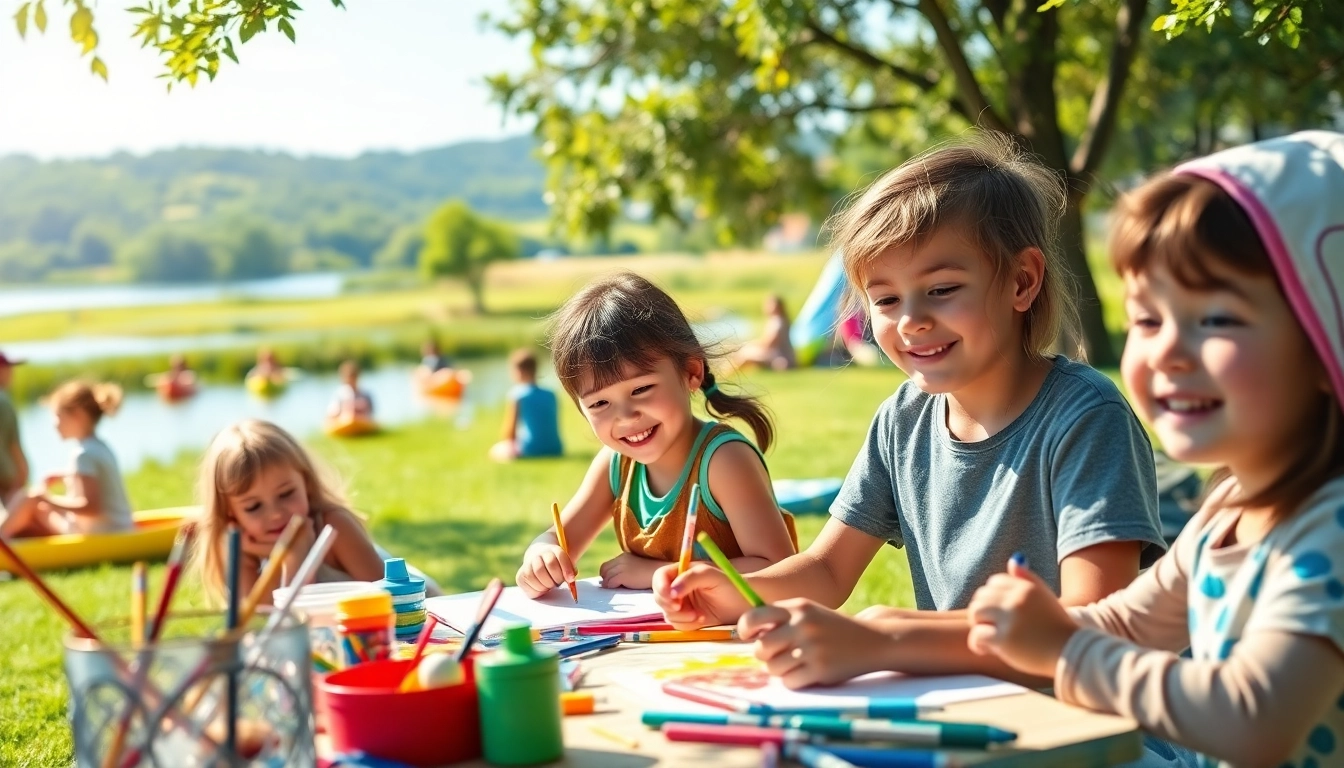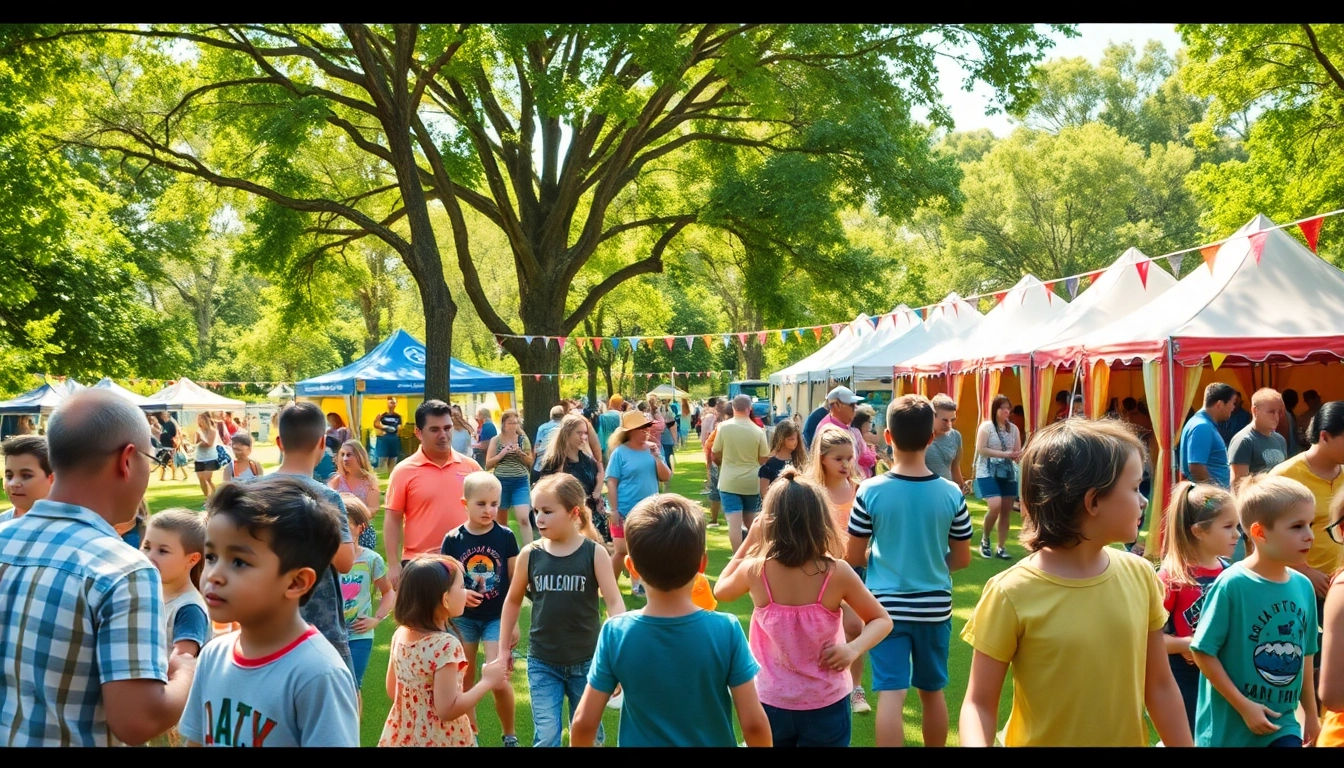Introduction to Holiday Camps
As the seasons change and school lets out, families often seek enjoyable and enriching experiences for their children. One popular option that stands out is holiday camps. These immersive experiences provide not only recreational fun but also opportunities for learning, growth, and making lasting friendships. In this article, we’ll explore the various facets of holiday camps, discussing their importance, diversity, key activities, benefits, selection criteria, and preparation tips to ensure a successful camp experience for all.
What are Holiday Camps?
Holiday camps are structured programs designed for children during school breaks, typically focusing on a range of activities that promote learning and fun. These camps can last for varying durations, from just a few days to several weeks, and can be day camps or overnight experiences. Often, they encompass a wide range of interests including sports, arts, nature, and academics, effectively blending education with enjoyment.
The Importance of Holiday Camps for Children
Holiday camps play a crucial role in a child’s development. They provide an opportunity to step out of the traditional classroom setting, exploring new environments and engaging in hands-on learning. Such experiences foster creativity, critical thinking, and problem-solving skills. Moreover, they enhance emotional and social development, teaching children teamwork, resilience, and the ability to navigate challenges independently.
Types of Holiday Camps Available
The variety of holiday camps available today ensures that there is something to fit every child’s interests and needs. Common types of holiday camps include:
- Sports Camps: Focus on athletic skills and physical fitness, often involving training and competitions.
- Arts Camps: Allow kids to explore their creative side through activities like painting, theater, and music.
- Adventure Camps: Provide outdoor experiences such as hiking, rock climbing, or kayaking, aimed at building confidence and survival skills.
- STEM Camps: Concentrate on science, technology, engineering, and mathematics, combining education and innovation.
- General Day Camps: Offer a mix of activities ranging from sports to arts, often accommodating various age groups.
Key Activities in Holiday Camps
Outdoor Adventures that Inspire
One of the quintessential features of holiday camps is the emphasis on outdoor adventures. These activities not only get children moving but also expose them to new challenges and experiences in a natural setting. Activities such as hiking, camping, and obstacle courses foster a love for nature and the outdoors while teaching essential life skills like navigation and cooperation. Through these experiences, children learn to embrace challenges, push their limits, and develop a sense of stewardship for the environment.
Creative Arts and Crafts at Holiday Camps
Creative expression is a vital component of growth in children. Arts and crafts sessions at holiday camps allow children to express themselves freely while enhancing their fine motor skills. Programs might include painting, pottery, dance, or music, helping campers to connect with their artistic side. Engaging in creative activities encourages imagination and self-expression, which can significantly enhance a child’s emotional intelligence and confidence. Moreover, it often culminates in displays of their work, fostering a sense of accomplishment and pride.
Sports and Team Building Exercises
Physical activity through sports is a fundamental aspect of holiday camps. Whether it’s soccer, basketball, or team-building games, these activities not only enhance physical fitness but also promote camaraderie among campers. Children learn valuable social skills such as teamwork, communication, and leadership through structured sports and team exercises. Participation in sports builds resilience, discipline, and the ability to handle both victory and defeat gracefully.
Benefits of Participating in Holiday Camps
Fostering Independence and Confidence
Perhaps one of the most significant benefits of attending holiday camps is the cultivation of independence in children. Away from the familiar comforts of home, children are encouraged to make decisions, solve problems, and take responsibility for their actions. This empowerment fosters a sense of confidence that carries into other areas of their lives. By learning to navigate new environments and meet new people, children develop self-reliance and an enhanced sense of personal identity.
Enhancing Social Skills and Friendships
Holiday camps provide an ideal platform for children to meet peers from diverse backgrounds. Engaging in group activities helps to strengthen social skills, as children learn to interact, share, and build new friendships. Such environments often lead to strong bonds that can last well beyond the camp experience. By working collaboratively towards common goals, children also learn the importance of empathy and respect for others, essential qualities for personal and professional success later in life.
Developing Physical and Mental Well-being
Regular engagement in physical activity at holiday camps not only promotes physical health but also significantly impacts mental well-being. Exercise is known to release endorphins, which can reduce anxiety and stress. Additionally, the combination of outdoor activities and creative exploration at camps fosters a balanced lifestyle and mental state. Children learn the importance of health, fitness, and well-being, equipping them with lifelong habits and encouraging holistic growth.
How to Choose the Right Holiday Camp
Factors to Consider When Selecting Camps
When choosing the right holiday camp for your child, several factors need careful consideration. First, evaluate your child’s interests to find a camp that aligns with their hobbies, whether that’s sports, arts, or adventure. Additionally, assess the camp’s safety protocols, staff qualifications, and the camper-to-counselor ratio to ensure a safe and supportive environment. Research the camp’s mission, values, and philosophies to ensure they align with your family’s beliefs and expectations.
Recommendations for Different Age Groups
Age appropriateness is another critical aspect to consider when selecting a holiday camp. Different camps cater to various age ranges, usually segmented into preschool, elementary, middle school, and teens. For younger children, look for camps that emphasize play-based learning and safety, while older children may thrive in camps promoting greater independence with challenging activities. Moreover, scheduling options should match your family’s availability, whether they prefer short day camps or extended overnight experiences.
Cost and Location Considerations
Cost can often be a determining factor when selecting a holiday camp. Encourage your child to consider what they can realistically commit to, balancing cost with the value offered by the camp. Additionally, consider the location of the camp. Proximity can make a camp more accessible, reducing transportation stress, while also allowing for local exploration of the community’s offerings. It’s wise to check for any scholarship opportunities, discounts for early registration, or bundled programs to help alleviate financial burdens.
Preparing for a Successful Holiday Camp Experience
What to Pack for Holiday Camps
Proper preparation can greatly enhance a child’s experience at holiday camps. Essential items to pack include suitable clothing for various activities, toiletries, personal items, and specific gear needed for the camp. Always include a few comfort items from home to ease potential homesickness, such as a favorite stuffed animal or family photos. It’s also helpful to ensure that all items are labeled with the child’s name to avoid mix-ups.
Setting Expectations with Your Child
Before attending camp, have open discussions with your child about what to expect. This includes talking about the types of activities they will be doing, who they will be meeting, and the overall camp environment. Setting realistic expectations can help mitigate anxiety and encourage excitement. Role-play potential scenarios and discuss how to manage feelings of discomfort or homesickness should they arise.
Post-Camp Reflection and Growth
After the camp experience, engage your child in conversations about what they learned, their favorite activities, and the new friends they made. Reflection fosters a deeper appreciation for their experiences and encourages them to articulate their feelings and growth. Discussing the camp experience can further reinforce the skills and lessons learned, integrating them into their lives afterward. It also provides a wonderful opportunity for bonding as a family.



